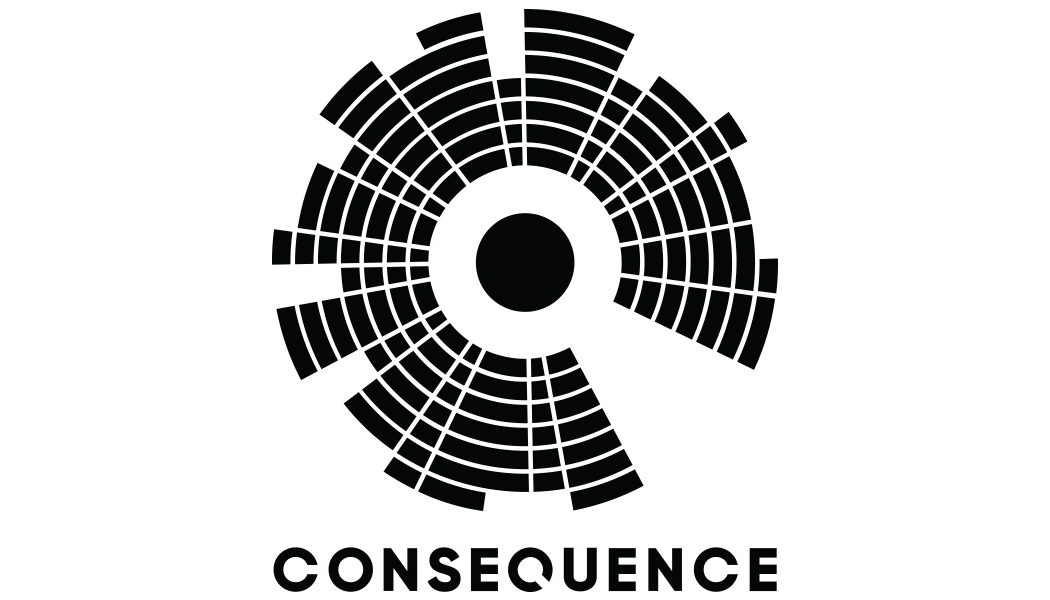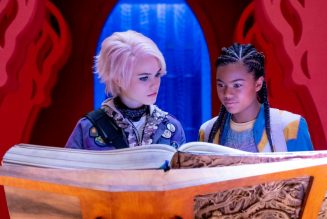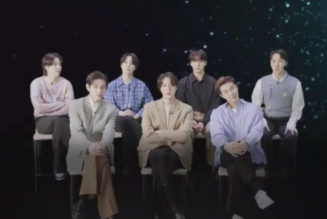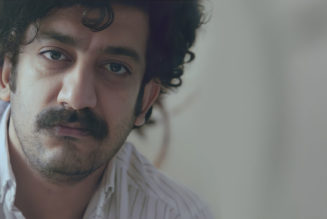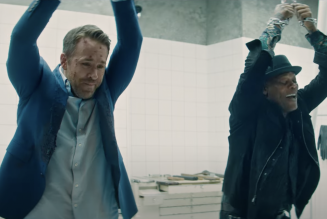The Pitch: Every day is a great day for Barbie (Margot Robbie). She wakes up in her Dreamhouse, takes a shower, puts on a fabulous outfit, and then heads out to spend time with her friends, who are all named Barbie, and are always happy to see her. That’s life in Barbieland for you, always the same and always perfect… Until the day comes when Barbie wakes up, and her day isn’t quite perfect. Small things go wrong, and she finds herself haunted by never-ending thoughts of death — not normal stuff for a Barbie.
Fortunately, Weird Barbie (Kate McKinnon, usually doing the splits) is able to diagnose the problem: Every Barbie in Barbieland has a corresponding girl in the Real World who plays with her, and something is clearly wrong with our Barbie’s playmate. So Barbie leaves Barbieland behind to voyage into the real world, and along for the ride is Ken (Ryan Gosling), who loves Barbie but is frustrated by the fact that every night is girls’ night, and she never makes time for him. So, while Barbie is successful in finding her playmate, Ken’s spent a little too much time in the Real World learning about the way things work here… and Barbieland may never be the same.
C’mon Barbie Let’s Go Party: Barbie is a magic trick, a stellar example of a filmmaker taking a well-established bit of corporate IP and using it to deliver a message loudly and clearly. That Greta Gerwig’s third solo film as director also manages to be a giddy, silly, and hilarious time is essential to its power, and the challenge of this review is thus trying to explore how the magic trick works, while still preserving the flat-out awe I have at what it achieves.
After all, Barbie isn’t just a toy. It’s a brand synonymous with femininity, loaded with pulsing pink power; power that’s been weaponized by anti-feminists over the years while also ruthlessly attacked by feminists themselves. If you were a girl with Barbies, you were growing up with the idea of her as “the perfect woman,” capable of every possible profession on the planet, but still largely defined by her aesthetics, from her outfits to her accessories to her braidable hair to her high heels, for which her feet have been molded permanently.
Gerwig and Noah Baumbach’s script acknowledges all the criticisms that feminists have had for years (some more superficially than others — the casting of a wide range of body types to play Barbieland Barbies does not necessarily make up for literal decades of unrealistic body expectations). Then, however, it pushes a step further into exploring the promise of Barbie, and how good intentions don’t always result in positive change.
Some of the concepts explored by Barbie will sound familiar, when it comes to the complexities that come with being a modern-day modern women, because feminists from Gloria Steinem to Liz Lemon have been articulating these themes for years now. Here’s the thing — yes, the complicated paradox of being a woman within the prison of society’s demands is well-covered ground. The reason we’re still talking about these problems is that they haven’t gone away.
</p>
<p> ” data-medium-file=”https://www.wazupnaija.com/wp-content/uploads/2023/07/barbie-review-a-dolls-existential-crisis-leads-to-one-of-the-years-most-life-affirming-films-1.jpg?quality=80&w=300″ data-large-file=”https://www.wazupnaija.com/wp-content/uploads/2023/07/barbie-review-a-dolls-existential-crisis-leads-to-one-of-the-years-most-life-affirming-films-1.jpg?quality=80&w=1024″ onerror=”this.src=’https://www.wazupnaija.com/wp-content/uploads/2023/07/barbie-review-a-dolls-existential-crisis-leads-to-one-of-the-years-most-life-affirming-films.jpg'” decoding=”async” loading=”lazy” class=”size-full wp-image-1308645″ src=”https://www.wazupnaija.com/wp-content/uploads/2023/07/barbie-review-a-dolls-existential-crisis-leads-to-one-of-the-years-most-life-affirming-films-1.jpg?quality=80&resize=1031%2C580&strip” alt=”Barbie Review Margot Robbie” width=”100%” srcset=”https://www.wazupnaija.com/wp-content/uploads/2023/07/barbie-review-a-dolls-existential-crisis-leads-to-one-of-the-years-most-life-affirming-films-1.jpg 1200w, https://www.wazupnaija.com/wp-content/uploads/2023/07/barbie-review-a-dolls-existential-crisis-leads-to-one-of-the-years-most-life-affirming-films-1.jpg?resize=150,84 150w, https://www.wazupnaija.com/wp-content/uploads/2023/07/barbie-review-a-dolls-existential-crisis-leads-to-one-of-the-years-most-life-affirming-films-1.jpg?resize=300,169 300w, https://www.wazupnaija.com/wp-content/uploads/2023/07/barbie-review-a-dolls-existential-crisis-leads-to-one-of-the-years-most-life-affirming-films-1.jpg?resize=768,432 768w, https://www.wazupnaija.com/wp-content/uploads/2023/07/barbie-review-a-dolls-existential-crisis-leads-to-one-of-the-years-most-life-affirming-films-1.jpg?resize=1024,576 1024w, https://www.wazupnaija.com/wp-content/uploads/2023/07/barbie-review-a-dolls-existential-crisis-leads-to-one-of-the-years-most-life-affirming-films-1.jpg?resize=1031,580 1031w, https://www.wazupnaija.com/wp-content/uploads/2023/07/barbie-review-a-dolls-existential-crisis-leads-to-one-of-the-years-most-life-affirming-films-1.jpg?resize=590,332 590w, https://www.wazupnaija.com/wp-content/uploads/2023/07/barbie-review-a-dolls-existential-crisis-leads-to-one-of-the-years-most-life-affirming-films-1.jpg?resize=278,156 278w, https://www.wazupnaija.com/wp-content/uploads/2023/07/barbie-review-a-dolls-existential-crisis-leads-to-one-of-the-years-most-life-affirming-films-1.jpg?resize=173,97 173w, https://www.wazupnaija.com/wp-content/uploads/2023/07/barbie-review-a-dolls-existential-crisis-leads-to-one-of-the-years-most-life-affirming-films-1.jpg?resize=140,79 140w, https://www.wazupnaija.com/wp-content/uploads/2023/07/barbie-review-a-dolls-existential-crisis-leads-to-one-of-the-years-most-life-affirming-films-1.jpg?resize=198,111 198w, https://www.wazupnaija.com/wp-content/uploads/2023/07/barbie-review-a-dolls-existential-crisis-leads-to-one-of-the-years-most-life-affirming-films-1.jpg?resize=674,378 674w” sizes=”(max-width: 1024px) 100vw, 1024px”></p>
<p id=) Barbie (Warner Bros.)
Barbie (Warner Bros.)
